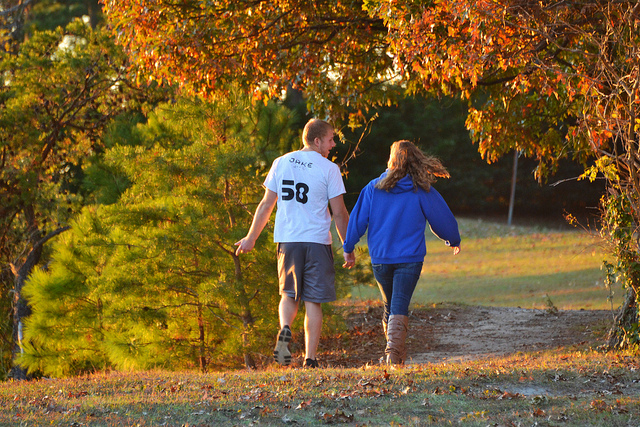
“The real measure of your wealth is how much you’d be worth if you lost all your money.” ~Unknown
When we find ourselves not having “enough,” times may be rough; however, this is only our first glance, our perceived perception.
Not all who have little are poor. None who live simply fit into the status quo. And none of us deserves to be judged for what we do or do not own.
Poverty lines are a general measure of separating the classes, but they fail to feel emotions, see our genuine qualities, or tell the stories of our lives.
They quantify our income, encourage us to strive for more, but more of what? More money to engage in better opportunities? More cash to buy more stuff?
Numbers have a tendency to lose their meaning when they don’t add up—a well-paying job with no time for family is no better or worse than barely scraping by without savings, yet having no debt.
There are many lessons to be learned from being poor. If you have ever been on your last coin, or more than once, chances are good that you may have experienced an enlightened state of being.
Voluntarily choosing to live with less is quite different than being born into poverty, yet the paths overlap and intersect on so many levels.
Searching for the silver lining of a free fall into a greatly reduced income, of which my husband and I caught the winds of almost a decade ago, we discovered the concepts of minimalism and simplicity.
At first I was terrified at the aspect of living off of so little money, coming from a consumer culture that defines worth in terms of income. However, rationality quickly stepped in after that initial panic, and feelings of being lost without monetary stability were replaced by a desire to live well within our means.
There was no denying the change of mindset that was rapidly taking place.
We made a tiny handful of money (way below poverty measures) that allowed us to go to the grocery store a couple of times a month for food; the rest we had to acquire for ourselves in other ways—learning to forage, trading, growing…
Every coin we made went toward nourishing our bodies, because good health is the most important aspect of survival.
When we couldn’t afford electricity for eight months, we lit the kitchen with a few beeswax candles. When they burnt out we went to bed early, only to wake up with the sun.
Employment was nowhere to be found in the countryside. We had no Internet connection and it seemed that life was on standby. Months and years went by, and it was hard. We didn’t buy anything we couldn’t afford, we didn’t want what we couldn’t attain, and all the while we didn’t complain.
The last part confused a lot of people. We didn’t complain because we accepted the situation we were in, and rather than fight it, we decided to learn from it.
It is possible to live well, well below the poverty line. Much of it depends on your state of mind, part of it comes from where you enter the phase of living with less; but wherever life takes you, lessons are waiting to be found:
1. You may already have enough.
In our past we had acquired all the things we needed for survival, and then some. Clothes “out of fashion,” but definitely not out of use. Pots, pans, dishes, music, games. Though we didn’t have the ability to buy things anew, we certainly did not go without.
When you have little, you may still have more than you realize at first glance. Set possessions aside and focus on life that surrounds you. Friends, family, your health—foster those intangible, yet all important connections.
Most importantly, make peace with patience. Slowly moves the world without flowing cash or access to the Internet, and it still remains a beautiful place to be.
2. Less time with electronic gadgets leaves you more room for people.
Physical relationships are the ones that foster real laughter, genuine love, and lasting memories. Conversations flourish in the absence of technology.
We can relearn to have meaningful discussions without a cell phone on the table; they only serve as a distraction at the dinner table and attest to our shortening attention spans.
3. Solitude gives you time to delve into your emotions.
It gives you time to think about life. Inner reflection is hard to focus on when we are busy day and night, so get un-busy and make more time for dreaming, questioning, and contemplating. Find quiet activities to let your mind expand to new horizons; you have the time.
4. Nature provides us with much beauty, energy, and inspiration.
No money for a concert? Great! Go listen to the night song of crickets in summertime, listen to frogs bellow, listen to birds or running water. Hike, walk, bike—get out of your four corners and find freedom in the “wild.”
5. Self-reliance will foster an unending sense of independence.
Spend time reading books; volunteer your time to learn and teach new skills, meeting new people and creating opportunities for advancement as you go about daily life. See the connections, and feel what is important for your personal growth.
Rather than feel guilty that we couldn’t afford to eat out, we chose to develop our cooking skills and embrace the art of slow food. We grew vegetables in the garden to preserve for winter, we baked our own pies and pastries, we relished in our growing confidence of all matters related to providing for oneself.
In eight years one can acquire immense knowledge, and our wealth grows with our ever-increasing set of useful skills (from knitting to felting to cobbing to shoe making) that we can apply over many aspects of life.
6. Happiness cannot be bought.
It can be grown, cultivated, tended, nurtured, but you won’t find it on a store shelf or a screen. Happiness comes when you are at peace with who you are, right in this moment—with your job or lack of it, with your salary or lack of it, with your friends or lack of them, with your wants fulfilled or lack of that.
Struggles can bring out the worst or the best in us! Living with less money than “ideal” is certainly a challenge and if we haven’t been there ourselves, we certainly know someone who has been financially in need. You can be rich and poor or poor and rich, depending on where you place your values.
Wanting less speaks volumes about your personality. It has nothing to do with charts and graphs that society creates, but it has everything to do with you—the way you treat yourself and the much-deserved attention you give to others around you.
The next time you take a pay cut, voluntarily or not, remember the advantages of more time, more meaningful experiences, and a whole lot less stuff to store along the way. You are not defined by your past; you and your thoughts are the future. Learn, let go, and move on.
You can live with much less than you ever thought possible and find many uplifting winds to carry you on your way.
Photo by Tony Alter
About Cheryl Magyar
Cheryl Magyar is a freelance writer, tree planter, and sustainable life designer, homesteading in the hills of northern Romania. Embrace nature and head over to ForestCreekMeadows for more insights of living a simple life! Follow on Instagram, and download My Sustainable Year, a monthly guide to inspire everyday actions of sustainability, as you sign up for their newsletter.











 Though I run this site, it is not mine. It's ours. It's not about me. It's about us. Your stories and your wisdom are just as meaningful as mine.
Though I run this site, it is not mine. It's ours. It's not about me. It's about us. Your stories and your wisdom are just as meaningful as mine.
This is so wonderful, Cheryl. Thank you! I have been struggling financially for quite some time and it can be a rollercoaster of emotions. You sure got me in check – Love it! xoxo
I am curious about something. How did you keep you food with no electricity? Most of what I eat has to be refrigerated. I eat salads, vegetables, meat, chicken, and sometimes fish. Did you have to take cold showers? I know sounds silly but I am really interested to know. Doesn’t the plumbing stop working after awhile with no electricity?
My son once asked if we were poor. I loved that question. I explained to him, if you just look at the money part, we are very poor. We are very rich in every other way though, we are a very lucky happy family. 🙂
The great thing about simple living is that it is well, simple. We didn’t have running water then and we still don’t. Our water for washing comes from a dug well a few feet from the kitchen, our drinking water from an artesian well a couple of kilometers away. In summer we preserve and sun dry fruits and vegetables, root vegetables are stored in the coolest part of the house (the pantry). We ate smoked meats and freshly cooked food, allowing not a morsel to go to waste – like people have always done in the past, and somehow we managed too. If you have a little piece of land, then the garden will be your best friend. (Raw milk can be clabbered, you can chill a melon in the well…)
The key is really self-reliance, the ability and sometimes courage to find out what you can do on your own. Usually it is a lot more than you think. Just keep on going, learning as much as you can along the way!
Well said 😉
Once you believe that you are wealthy and that scarcity is an illusion, then you will attract wealth. It took me a long time to realize this. Everyday I tell myself that I am wealth. The Universe gives you what you want, and if you keep telling yourself: “I am poor, I am broke”, then The Universe will give you just that. Be mindful of your self talk, because what you tell yourself is very powerful.
Wealth means a thousand things to a thousand different people. Monetary wealth is but the stereotypical one. Love, happiness, self-reliance, independence – those are some others. We each have it in us to define wealth in our own terms.
Thank you, very good to know. I think I would to live off of the grid. At least, for a while.
There’s a saying “Traveling is the only thing you can buy that will make you richer”. It makes a lot of sense – the people you meet and spend time with is what wealth is all about, a tube of abundance and wonderful opportunities to learn and experience, an endless contribution to your spirit and has nothing to do with the clothes you wear or the house you live in, while materialism is external, has a beginning and an end, therefore it is in fact meaningless to who you are and how you live your life.
Sometimes life is work and everything can’t be “fun!” Chores have to be done and many things require maintanance. Why not do the things that you have to do anyway, more frugally? Many of the frugal, fun things that I do require a bit more planning but often, that makes them more satisfying.For me, the older that I get, the more time and effort I am willing to invest in all the fun and not so fun things that make my life move in the direction that I want it to.